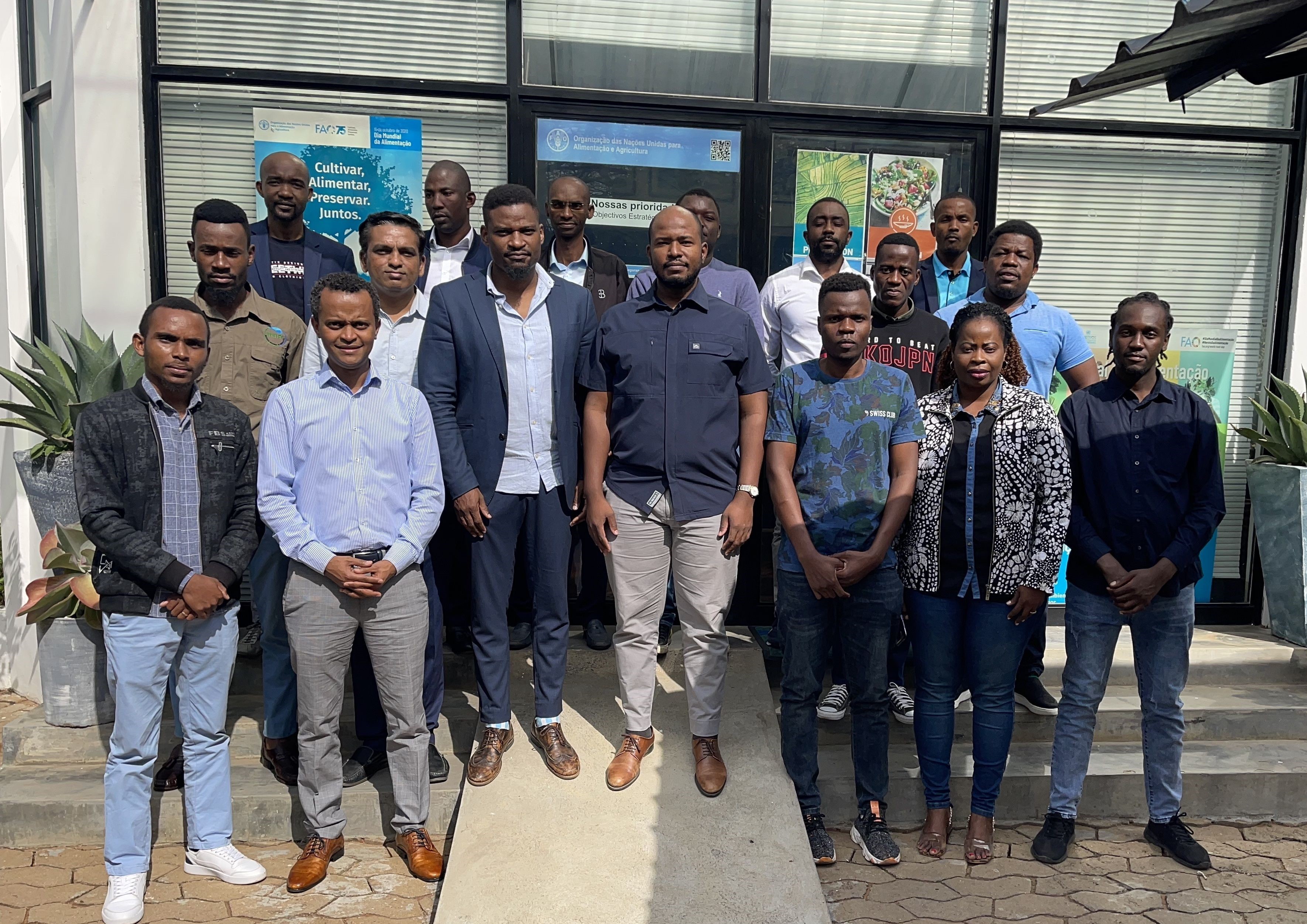Irrigation performance tool co-design workshop in Mozambique

The WaPOR project conducted a co-design workshop from 18th to 20th May 2023, facilitated by the International Water Management Institute (IWMI) and FAO. The primary focus of the workshop was to identify the information requirements of stakeholders for the irrigation performance tool, aiming to support their decision-making processes. Key topics discussed included the co-development of the tool, data sharing, establishment of a technical work group, and exploration of the application's prospects.
Notable participants at the event included the National Institute of Irrigation (INIR), Monitoring and Verification Unit (MRV) from MADER, Hidraulica de Chokwe (HICEP) (now called RGB), National Directorate of Water Resource Management (DNGRH), and the National Agricultural Research Institute (IIAM).
During the workshop, stakeholders expressed several priorities, including quantifying water usage by crops, reducing costs and increasing crop yield, providing field-level water consumption data, offering soil quality information, determining water users, and assessing water usage quantities. Stakeholders emphasized that the tool would greatly benefit irrigation schemes, supporting operational and tactical decision-making, as well as policy-making at the national level.
The information needs from the tool were categorized into water and land utilization (evapotranspiration and yield) and productivity, which were deemed crucial for decision-making processes within respective institutes.
However, implementing the tool may face challenges such as the lack of personnel and required skill sets. Capacity development in remote sensing and GIS was suggested to bridge some skill gaps, although providing comprehensive training programs was beyond the scope of the project. Sharing the tool's outputs among different directorates within a ministry and between various ministries and stakeholders could also pose challenges. It was recommended to engage stakeholders in in-person training sessions in Mozambique.

Workshop participants in front of the premises of FAO Mozambique, where the workshop took place.
